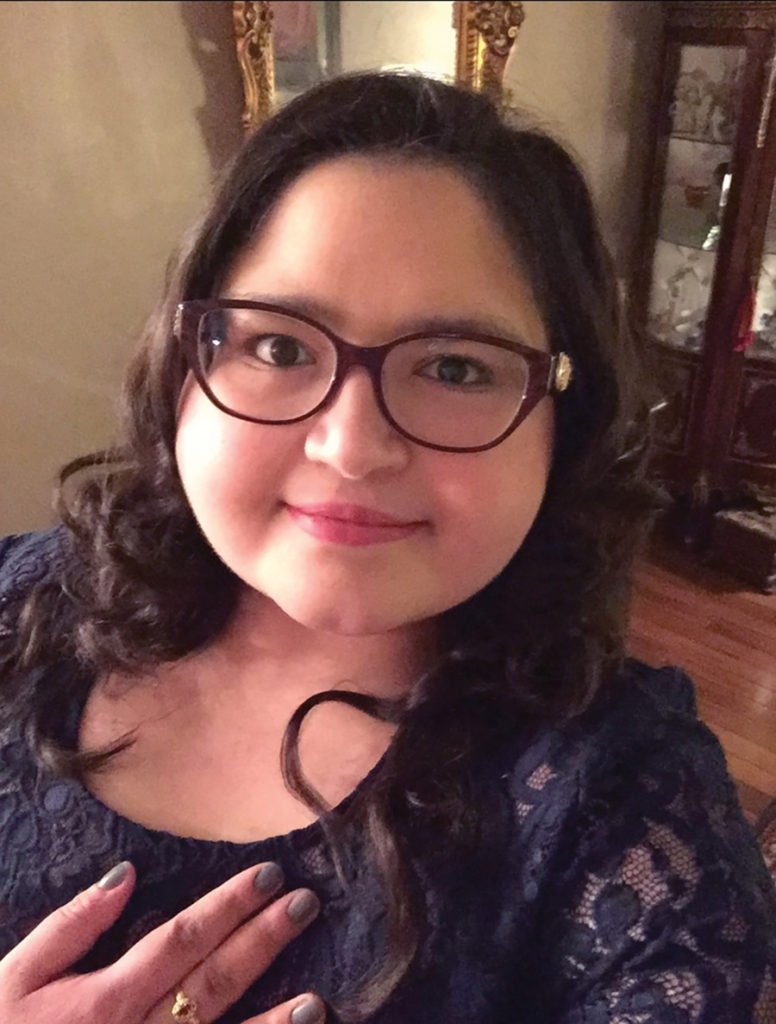Renata Isopo

Chronic illness can generate feelings of denial, anger, grief. But at some point emotions subside and the harsh reality strikes that you are no longer the person you once were. The illness robs you of your sense of identity and purpose. Can a meaningful life be rebuilt? Yes, if an incredibly strong, courageous fighter who never let go of her will to live, a survivor, one of life’s miracles is any example of how to celebrate life by lighting a candle instead of cursing the darkness. Here’s Alice’s heroic story, told in her own words of inspiration to all.
Uncharted territory
“Rebuilding or redefining normal is a long process,” she says. After spending my teenage years at St. Justine’s Children’s Hospital as a permanent resident, and consequently at the Jewish General Hospital as soon as I turned 20, I felt that things couldn’t get worse. Rebuilding my life required that I explore uncharted territory.”
What did you miss most about high school?
“It was bleak. I missed my friends, going to class, the activities, and just being a regular teenager. I was home-schooled but too sick even for that. Most days were spent in the hospital. I wanted to graduate with my classmates. My home-school teachers did their best, but it was too hard, they stopped coming, except for one who never gave up and made sure I would graduate with everyone else.
I left the hospital to attend the Laurier Senior High School Graduation Ceremony, an emotional day for me and family, flooded with tears of joy although I was still in much pain. To go on stage for my certificate was my greatest accomplishment, something I will never forget.”

Did you ever lose hope?
“No. I never said, ‘Why me?’ – no matter what debilitating state I was in. On tons of medication, I underwent chemo, cortisone, and radiation therapy although I didn’t have cancer. Often delirious, I developed allergies, and lost my hair several times. I was unrecognizably bloated, weighing 200 pounds from medication and treatments, one experiment after another, hoping the next one would be it.
My doctor travelled overseas to learn about my illness (Purpura Trombose Trombocitopenique) and how to treat it since very few people are known to suffer the condition. She wasn’t very successful, just more experiments which I willingly took. There was nothing else. Only 14 when struck with the disease, I didn’t understand it, but I learned a lot about it through my medical team. Explanations and research from across the world helped me face what I was up against. I never lost hope, knowing God was with me.”
How did the illness affect your family?
“Everyone was affected. It changed their responsibilities and boundaries. For my mom, it was emotionally and physically devastating, pulled in all directions, back and forth to doctors, hospitals, and home. She gave up her job since she slept at the hospital. She became a permanent fixture in my hospital room, was always there, a tower of strength never giving up hope even when there seemed to be no hope in sight. My dad suffered financial strains since he spent days at my bedside also. It was emasculating and frustrating for him to watch his child deteriorating, in pain, hooked to life-support machines.”
After seven years, what is your message to others who are chronically ill?
“Well, my family and I had to create a ‘new normal’ to better understand and find meaning in everyday challenges. To survive, you take it a day at a time, it’s all you can do. Take nothing for granted and realize you’re stronger and more capable than you ever thought you could be.
Never lose hope, stay faithful and true to yourself. Be thankful and positive, things can and often do change for the better. I lost over 100 pounds, still more to go, living at home now. I go for weekly for treatments, but I’m really much better, thank God. I’m planning my future although there are always crisis-mode moments. I’ve been through a lot, but in my heart I believe the best is still yet to come.”



